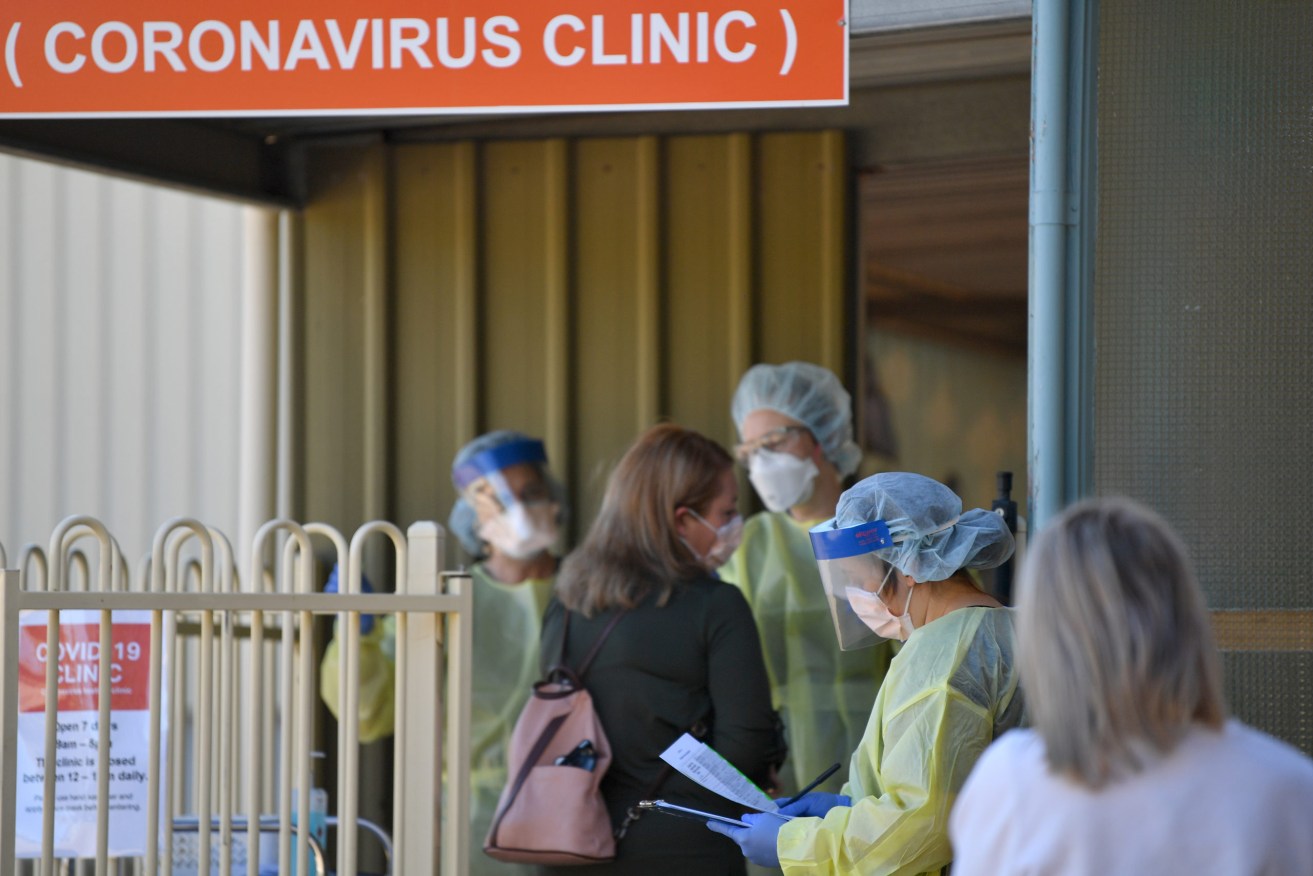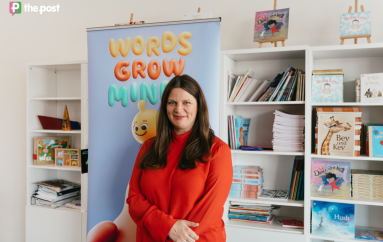COVID-19 makes life tougher for those already struggling
Australia’s response to the coronavirus pandemic needs to take into account those who will be hardest hit, writes SA Equal Opportunity Commissioner Niki Vincent.


Photo: AAP/David Mariuz
As we watch the escalating devastation of COVID-19 on workplaces, business, our finances, employment, and indeed our entire way of life, it’s hard to take in the magnitude of this crisis which has escalated so quickly. Sadly, for many people, it means an already hard life will now get just that bit worse.
Nothing symbolises this more than the photo of an elderly woman crying in a supermarket in front of bare shelves a few weeks ago. The image was taken by Channel Nine journalist Seb Costello and went viral around the world. This is the face of vulnerability.
Midday today.
Port Melbourne Coles.
Canned food aisle.
I’m told she was in tears.This captures who is suffering from the me-first, unnecessary, trend of panic buying.
As @ScottMorrisonMP it “has to stop”. @9NewsAUS @theage @ACurrentAffair9 #coronavirus pic.twitter.com/sFMx8RFeb7
— Seb Costello (@SebCostello9) March 19, 2020
Gender equity and COVID-19
In the cries to shut borders, close schools and lock down workplaces, and in the scramble to secure our own positions and that of our families, I hope the disadvantaged are not forgotten. I’m talking about the children of parents who are unable to adequately look after them when schools finally closely, the homeless, those who have a disability, and the aged.
But I’m also mindful of the costs to another demographic group who often experience inequity – women, especially those who are low paid, casual workers, in relationships where there is domestic violence, single parents, carers, and sole traders. I understand this is a crisis which touches everyone and there are no winners, but many women are likely to come out of this worse off in the long run for a variety of reasons. We need to remember this when designing our economic rescue packages.
To really appreciate gender equity in the time of COVID-19, let me unpack some of the main issues.
Domestic violence risks
If China is anything to go by, we can expect an escalation in domestic violence incidents.
While workplaces were once a sanctuary for many, spending long hours indoors shut up with perpetrators is likely to heighten the risks. Although men can be victims of violence, domestic violence is overwhelmingly a gender-based problem, with one in four women having experienced violence by an intimate partner, compared to one in thirteen men (ABS, Personal Safety Survey 2016).
Support agencies are already working at full capacity.
Fortunately, the Prime Minister has just announced another $150 million to support existing initiatives that address these issues. For those experiencing problems, the 1800 Respect phones will always remain operating for advice and assistance.
The increasing burden on carers
And what about the increase in unpaid work for women?
These days most women are members of the workforce. Yet, studies show they still overwhelmingly do the lion’s share of the childcare, and more of the housework.
With COVID-19 forcing many to shift their work from the office to their home (at a time coinciding with possible school closures and extended holidays), their load just got a whole lot bigger.
Juggling this burden may result in a reduction of available paid working hours, at least in the short term. We need to encourage and support partners to step up to help them.
And let’s not forget about other carers.
For those of us with aging parents and other caring responsibilities, keeping our loved ones safe and well is a huge concern. That job almost always falls to females in a family.
In 2015, studies from the Australian Bureau of Statistics looked at carers of the aged and those with a disability. This showed 6 per cent of women versus 3 per cent of men aged 15 years and over provided primary care to a person with a disability. Of those women and men who provided care, 13 per cent and 26 per cent respectively were employed full-time.
Most of the unpaid caring work was carried out by women aged 45 – 64. This is a generation in their 40s and 50s that may be looking after parents but still bringing up children and teens of their own, and juggling careers.
Workplaces may have to be more aware of this over the coming months.
Demographics of healthcare workers, sole traders
Let’s also consider the very important fact that most frontline health workers in many sectors are women. This includes nurses, aged care workers, and allied health assistants.
These are women who will be at risk of catching the virus in our hospitals and aged-care facilities.
Many of them will also be juggling childcare when they work long hours or need to recover. Whatever support they can be given would be a win for all of us.
And what of the 600,000 or so women who work as sole traders in home-based businesses? To date, women have been starting small businesses at a faster rate than men.
With the economic downturn, we are seeing sources of income drying up and invoices often going unpaid.
Although with the latest ‘JobKeeper’ announcement by the Prime Minister many sole traders may be able to access a $1500 fortnightly allowance to make up for some lost income, details are still being worked out regarding who may qualify, and what impact this may have on a person’s total earnings.
In the meantime, this cohort is still encouraged to draw down on superannuation to survive, or take out low-cost business loans. Given the recent stock market dive which will have reduced super earnings for everyone, many sole traders are likely to be impacted by this. And with the superannuation balance of the average woman at less than half that of a man’s at retirement, this is not a good scenario for females. If money is taken out of super early, it may be difficult for those who are single-parents or divorced in their 40s, 50s and 60s to catch up and establish enough money to stay off the poverty line when it comes time to stop working.
Casual workers, few options
And lastly, in a time where all employees have been encouraged to join the gig economy, casual workers may be the first wave of a fall-out.
Unlike many other workers, they have no access to paid sick leave and can rarely bring their work home. Although men work in casual roles, statistically it is often women working in these industries where they are the lowest paid. They work as cleaners, in the hospitality industry, and in restaurants.
With a shutdown, their jobs have disappeared overnight.
While many may be young and still under the care of parents, others are not. In fact, they may be the main breadwinners. At least there is now provision for them to access Jobseeker payments and a fortnightly COVID-19 supplement, but much effort will need to go into retraining opportunities to get them back into work as soon as possible.
Hope in adversity
On a brighter note: new moves to instigate working from home across the board in all industries is likely to provide more access to flexibility for both men and women in the future, and this will enable better “shared care” options which will ultimately benefit families when this is all over.
There is no doubt this crisis affects everyone, and women have a big role to play as leaders. However, as yet there have been so few women appointed to either the national or our state COVID-19 advisory committees. This is despite that fact that gender diversity has been shown to deliver better decision-making. It was interesting to see a recent Roy Morgan poll reported by Women’s Agenda recently that showed women topping “Net Trust Scores”, with Jacinda Ardern leading the pack, followed by Opposition Leader in the Senate Penny Wong, NSW Premier Gladys Berejiklian, and former ALP deputy leader Tanya Plibersek.
Overwhelmingly the main challenge we face now is learning to find hope in adversity, and to embrace the chance to create a better world for everyone.
Flexible work, a better appreciation of and care for the aged, more support for vulnerable people like domestic violence victims, and learning to pick up some of the load for the primary carers at home are all actions that will stand us in good stead in the long run. These are the butterflies in the difficult world we live in right now. Make your actions count.
Dr Niki Vincent is the Equal Opportunity Commissioner for South Australia and the convenor of the SA Chiefs for Gender Equity group.
Want to comment?
Send us an email, making it clear which story you’re commenting on and including your full name (required for publication) and phone number (only for verification purposes). Please put “Reader views” in the subject.
We’ll publish the best comments in a regular “Reader Views” post. Your comments can be brief, or we can accept up to 350 words, or thereabouts.




